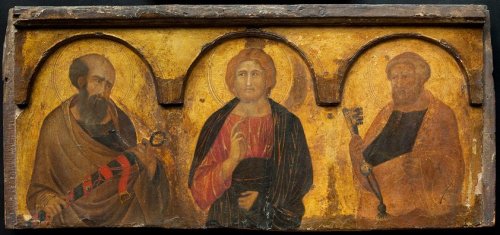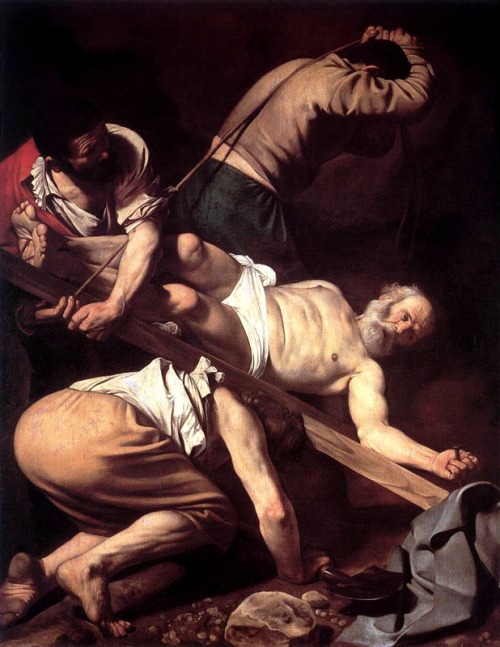
Occasionally while some study the chronology of Paul’s life and ministry they become confused about his early visits to Jerusalem and Luke’s reporting of these same visits in Acts. Regrettably, the discussions provided by some scholars on this topic create more confusion than is justified. This blog does not address Paul’s visits that occurred late in his ministry, it is highly unlikely that all of Paul’s visits to Jerusalem are referred to in his epistles or in Acts. Nevertheless, the historicity of the scriptures is an important issue, and we should be very careful of those who suggest that historical errors are contained within them. Recently I listened to a lecture by Bart Ehrman in which he stated that because of the complexities involving the historical veracity of the New Testament then no one should place a lot of confidence in the historical accuracy of the book of Acts. Consequently, I have put together a brief chronology of Paul’s visits to Jerusalem before the Jerusalem Council convened with the hope of clarifying the specific issue as to whether Paul and Luke contradict one another with respect to Paul’s early ministry movements and his visits to Jerusalem. The issue is not as complex as some make it out to be, and it occurs simply because Luke and Paul use slightly different vocabulary when discussing Paul’s earliest visits to Jerusalem.
Paul describes his first visit with the leaders of the church in Jerusalem in Galatians 1.18-24. This meeting is recorded in Acts 9.26-30. It appears that Luke’s term “many days,” should be understood to have been approximately 3 years (Acts 9.23 & Gal. 1.18). Luke’s statement that Barnabas brought Paul to the “apostles” (Acts 9.27) should not be understood to mean that Paul was brought before all 13 apostles (by the number 13 I am including James the half brother of Jesus and Matthias), but only that Paul meet with a few apostles that represented the entire group, specifically Peter and James the half brother of Jesus (note that Paul referred to James as an apostle in Gal. 1.18-19). This could be justifiably understood as meeting with “the apostles” because Paul met with more than one of the Jerusalem apostles, and also because in the Jewish mindset a part of something was often considered as sufficient for the whole. The lack of precision is less than desirable for our modern way of calculating, but this type of thinking was a Semitic inclination just the same. Paul stated that after his first meeting with Peter and James he left and went to the regions of Syria and Cilicia (Gal 1.21). Luke confirmed Paul’s destination after leaving Jerusalem, but rather than focusing on the “regions” that Paul went to, instead he mentioned the specific city to which the apostles sent him, which was Tarsus—Paul’s hometown (Acts 9.30). Tarsus is located in the southeastern region of Cilicia. The purpose of Paul’s first meeting was to introduce Paul to a few of the church’s leaders in Jerusalem with Barnabas being the intermediary. Luke made it clear that during Paul’s first visit to Jerusalem most believers were extremely untrusting of him (Acts 9.26). Given the suspicious nature of Paul’s dramatic conversion it would make sense that the leaders of the church in Jerusalem would not allow all the apostles to be exposed to Paul in case his “confession” of faith was just an elaborate charade for the purpose of ferreting out the leaders of the young church in Jerusalem. Consequently, Paul only met with Peter and James. I would guess that during this brief first visit to Jerusalem (15 days Gal. 1.18.) that Paul asked a lot of specific questions to Peter and James concerning the things Jesus actually taught since Paul apparently had not heard Jesus for himself. Paul boldly spoke in the name of Jesus while in Jerusalem (Acts 9.28), which should be understood to mean that he preached the gospel and spoke of Jesus as the promised Messiah. However, Paul was adamant (Galatians 1.15-17) that he did not need to be taught the gospel from those who were apostle before him since he had personally met Jesus and received the gospel directly from him (cf. 1 Cor. 15.8-10). The church in Jerusalem became somewhat familiar with him as a result of this visit. However, while the church in Jerusalem had learned about Paul’s conversion to Christ and his boldness for the Lord, other churches scattered throughout the greater region of Judea still could not identify him by sight (Gal. 2.22). Being that Paul was only in Jerusalem for a little more than 2 weeks, it is understandable why Paul was fairly unknown in the greater region of Judea during the period immediately following his conversion.
Paul described his second meeting with the leaders of the church in Jerusalem in Galatians 2.1-10. It appears that the main reason for this visit to Jerusalem was because of the prophecy/vision concerning a coming famine (Gal 2.2; Acts 11.28). This visit is also recorded in Acts 11.27-30. Paul took the opportunity while in Jerusalem to meet with the “pillars” (i.e., leaders) of the church there for the purpose of explaining his ministry and calling, which was to be the apostle to the Gentiles. Since Paul mentions the issue of circumcision in Gal 2.1-10 it is likely that this topic was discussed, but no official or public decision was made by the leadership of the church in Jerusalem at that time. Nevertheless, the apostles who met with Paul clearly affirmed his ministry and his understanding of the gospel. This meeting was not the meeting recording in Acts 15, and we know this because in Gal 2.10 the apostles encouraged Paul to be mindful of the poor, which is not even mentioned in the general epistle to churches recorded in Acts 15.23-29. The encouragement in the universal letter to all the churches recorded in Acts 15 concerned fornication/idol worship and Jewish sensitivities to animals that had been sacrificed to idols (Acts 15.29); notice, there is no mention about caring for the poor. The apostles and elders of the Jerusalem Council were essentially calling all Gentiles believers to separate themselves from everything that had anything to do with pagan worship, which would be a natural result of coming to faith in Jesus Christ as one’s Savior and Lord. Essentially the leaders of the church in Jerusalem were calling gentile believers to make a public decision and stand for Christ. There is no indication of such a concern during Paul’s second visit with the leaders at the church in Jerusalem, which Paul detailed in Galatians 2.1-10.
From Acts 15.1-29 we learn of Paul’s third meeting with the leaders of the church in Jerusalem. This meeting is not recorded in Paul’s epistle to the Galatians. If this meeting had occurred before Paul wrote his epistle to the Galatians then he would have been obliged to announce their decision in his letter to the Galatians, as he in fact did with the church in Antioch and elsewhere (Acts 15.30; 16.4). However, we find no reference to the decision made at the Jerusalem Council anywhere in Paul’s letter to the Galatians. The purpose of the Jerusalem Council was to address the false gospel (Acts 15.1; i.e., a faith plus works gospel) that had arisen within the church by a sect of the Pharisees (Acts 15.5) who claimed to follow Jesus as the Messiah, but had actually contaminated the gospel by requiring obedience to the Mosaic Law (i.e., circumcision). They were not true believers (which is a major that point made by Paul throughout his epistle to the Galatians with respect to anyone who held to such a soteriology). The decision of the Jerusalem Council in Acts 15 was an official universal decree made by the leaders of the church at Jerusalem through the guidance of the Holy Spirit (Acts 15.28) concerning what was the authentic gospel as received directly from the Lord Jesus Christ (Luke 24.44-48), which is salvation by God’s grace alone through faith alone in Jesus Christ alone (Acts 15.7-11). The Jerusalem Council did not attempt to change the gospel message, but instead chose to remain faithful to the authentic gospel that the apostles had personally received from the risen Lord.
One important note: the Council’s decision was a universal proclamation of the true gospel for both Jews and Gentiles concerning how one is saved. However, the Council’s decision should not be understood to mean that Jews should no longer continue the practice of circumcision. It only meant that circumcision was not a “requirement” for salvation (moreover, circumcision was never intended to secure salvation). However, if Jewish parents wished to continue to identify their sons as Jews who would participate in the promises made to Abraham, then they could and should have their sons circumcised. Circumcision was always a sign for Jews of their ethnicity and participation in the Abrahamic Covenant. If circumcision no longer had any meaning or purpose whatsoever, then Paul would not have had Timothy circumcised (Acts 16.3). The sign of circumcision predates the Mosaic Law, and was the way the decedents of Abraham to identify themselves before God as ethnic sons of Abraham who were looking toward the fulfillment of God’s promises to Abraham concerning the land (Covenant Theology notwithstanding, but this would be a debate for a different class). Some might ask “what about women, how would they make the same identification”? The way women could continue to be identified as participating in Abrahamic Covenant as Abraham’s descendants would be to marry Jewish men. Jewish women continue to participate in the Jewish community by marrying Jewish men, and thus perpetuate the Jewish race (some may disagree, but this again would be a different discussion for another course). The one caveat, of course, would be that believing Jewish women should marry Jewish men who are also believers (1 Cor 7.39, 9.5; 2 Cor 6.14-18). Anyway, I hope this clarifies any confusion concerning Paul’s meetings with the apostles and elders of the church in Jerusalem early in his ministry as documented by Luke in Acts and Paul in his epistles. The primary take away from this blog is that there are no significant discrepancies between Luke’s history on the birth and growth of the early church and Paul’s personal descriptions about his early ministry movements to and from Jerusalem.
Doc.
Monte Shanks Copyright © 2014

